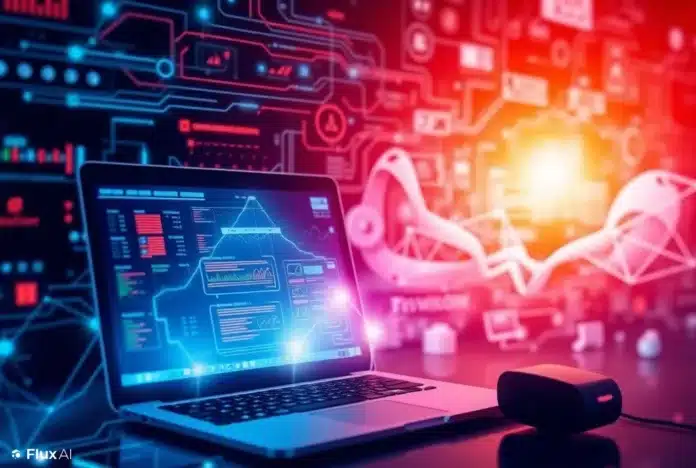We are witnessing an extraordinary moment in human sciences. From advancements in medicine to breakthroughs in artificial intelligence (AI) and neuroscience, this era marks the beginning of transformative changes. The fusion of cutting-edge technologies with scientific research is propelling us into life-altering times. These innovations are not only revolutionizing our understanding of human biology but also reshaping how we interact with the world.
Technologies Converging for a Breakthrough
The driving force behind this rapid acceleration is the combination of several key technologies. AI, biotechnology, genomics, and advanced computing systems are working together in unprecedented ways. This collaboration is enabling discoveries on a scale once thought impossible.
Take AI, for example. AI-powered models analyze massive datasets in medicine, genomics, and imaging. In cancer research, AI can predict tumor development, providing doctors with personalized treatment strategies. This personalized approach tailors therapies to each patient’s unique genetic profile, improving treatment outcomes and reducing risks.
Meanwhile, the cost of sequencing the human genome has dropped dramatically. Previously, genome sequencing cost billions; now, it’s just a few hundred dollars. This accessibility allows healthcare providers to use genetic data to customize treatments for patients based on their DNA.
Biotechnology’s Groundbreaking Impact
Biotechnology is also experiencing a period of unprecedented growth. The development of CRISPR-Cas9, a gene-editing tool, allows scientists to modify DNA with precision. This advancement holds enormous promise for treating genetic disorders and combating global challenges like food shortages and disease outbreaks.
With CRISPR, researchers can potentially eliminate hereditary conditions by editing genes at the embryo level. While this prospect raises ethical concerns, the potential to eradicate conditions like cystic fibrosis or muscular dystrophy offers hope. These genetic edits could change millions of lives for the better.
Synthetic biology is advancing as well. Scientists are now designing organisms to clean up pollution or produce sustainable energy. These engineered organisms may one day solve major environmental problems, such as energy scarcity and pollution, making biotechnology a key player in shaping a sustainable future.
Neuroscience and Brain Discoveries
The human brain has long been one of science’s biggest mysteries. However, advances in neuroscience and imaging technologies are unraveling its complexities. Researchers are now mapping brain regions with incredible detail, identifying how specific areas affect memory, emotion, and decision-making.
This research is transforming how we treat brain disorders like Alzheimer’s and Parkinson’s. As scientists uncover how these conditions affect the brain at a molecular level, they can develop targeted treatments to slow or reverse the diseases. Understanding the brain’s intricate workings brings us closer to finding cures for conditions once thought untreatable.
One of the most exciting developments is brain-computer interfaces (BCIs). BCIs allow direct communication between the brain and machines, enabling people with disabilities to control prosthetics or computers with their thoughts. This technology restores independence to individuals who have lost mobility or communication abilities.
BCIs will also transform our daily interactions with technology. Soon, you may be able to control your devices—phones, computers, even cars—using only your thoughts. What once seemed like science fiction is rapidly becoming reality, bringing us closer to a future where humans and machines work together seamlessly.
Ethical Considerations in Rapid Advancement
With these innovations come critical ethical considerations. As we begin editing genes, enhancing human abilities, and connecting minds to machines, we must ask what it means to be human. Should we eliminate genetic diseases even if it means altering future generations? Is it right to enhance human intelligence or strength through technology, potentially creating an uneven society?
These issues are no longer hypothetical. Today, we see parents choosing certain genetic traits for their children. Though it’s currently limited to cosmetic traits like eye color, genetic enhancement is on the horizon. Ensuring responsible use of these technologies is crucial to prevent social divides and protect human dignity.
AI in healthcare presents additional ethical dilemmas. AI models rely on vast amounts of data, but if that data contains biases, it can lead to discriminatory outcomes. Therefore, as we integrate AI into decision-making processes, we must prioritize transparency, fairness, and accountability to avoid unintended harm.
Unleashing Human Potential
Despite these challenges, the opportunities ahead are incredible. The acceleration in human sciences opens doors to possibilities once beyond our reach. We are unlocking the mysteries of life, from the genetic code that defines us to the neural networks that power our thoughts.
In healthcare, people will live longer and healthier lives. Personalized medicine will become the standard, treating diseases based on each person’s genetic makeup. Previously untreatable conditions will become curable as AI and biotechnology continue to innovate.
In education, AI will tailor learning experiences to individual needs, helping students reach their full potential. The workplace will also evolve as automation and AI transform industries, generating new opportunities for growth and innovation.
The Bright Future of Human Sciences
We are just at the beginning of this exciting journey. The pace of discovery is accelerating, and we are entering an era that will reshape every aspect of our lives. As we push the boundaries of human science, we must also remain mindful of the ethical responsibilities that come with such power.
The future is filled with promise. From the genetic revolution to brain-computer interfaces, the possibilities are vast. However, it is up to us to ensure these technologies benefit all of humanity. By harnessing the power of human science responsibly, we can build a future that enhances well-being, innovation, and equality for generations to come.



